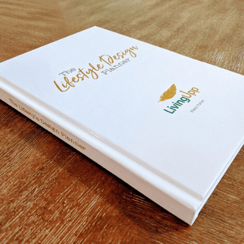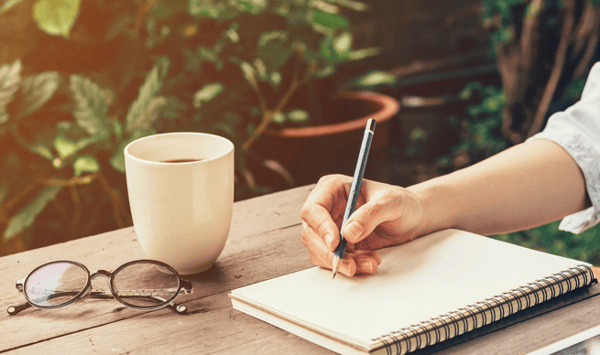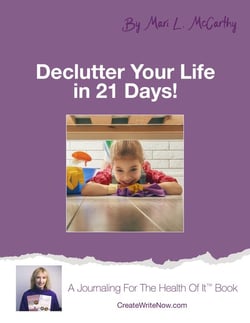Do you drink enough water? If you’re like most people, the answer is probably no. According to the USDA, only about [76 percent] of Americans drink plain water. Most prefer soft drinks, specialty coffees, and other sweetened beverages. But there are some good reasons to make water your beverage of choice when it comes to maintaining optimal hydration.
Health Benefits of Water
Water is a life-sustaining essential nutrient. It helps deliver key nutrients to the cells of your body and carry away harmful substances. Water also helps regulate blood pressure, acid-base balance, and body temperature.
As a registered dietitian, I generally recommend most people make water their primary beverage, and here’s why:
**It’s calorie-free**. Unlike many sweetened beverages on the market, water contains zero calories. This is important if weight loss (or maintaining a weight loss) is one of your health goals. Most beverages contain high amounts of sugar and other flavorings that can add unnecessary calories and interfere with health goals.
**It’s affordable.** The price of bottled water can be astounding, especially when you consider that much of it is highly marketed tap water. The costs can really add up over time. Tap water, on the other hand, is much more practical and affordable, and it doesn’t add more plastic to the landfill. If you’re concerned about the quality of your local water supply, consider using a water filter.
**It’s simple.** Plain water doesn’t require any special preparation, mixing, or brewing. It’s simple, easy, and convenient.
Dehydration: Truths & Myths
First, let’s dispel the [myth](NBCI) that most people are walking around dehydrated. While many blogs and media outlets have claimed that 75% of Americans are dehydrated, there simply isn’t a whole lot of scientific evidence to back that up. The truth is, medically diagnosed dehydration is typically relegated to those with serious illnesses or acute medical conditions. Most of us get enough fluid from the food we eat and the beverages we consume throughout the day.
That said, it’s reasonable to assume that many of us are walking around _under_hydrated. Research [suggests](NCBI) that underhydration can result in fatigue, agitation, sleepiness, confusion, and decreased alertness—all of which can have a negative impact on your health…and your journaling practice.
With this in mind, making sure you get enough fluid each day may offer some health benefits, even if only subtle ones.
Hydration and Journaling
So how does hydration affect your journaling practice? Journaling and hydration go hand in hand. Hydrated minds are sharper, more focused, better at solving problems, and more creative. So, when it comes to getting your thoughts down on paper, cognitive function matters.
Researchers have also found correlations between hydration and mood. The better hydrated you are, the better your mood. If you want to get the most out of your journaling practice, make sure you stay well-hydrated.
How Much Fluid Is Enough?
If you’re wondering how much fluid you should be getting each day, you’ll be hard-pressed to find exact numbers. That’s because it depends on several factors, including your weight, age, the climate you live in, how much you exercise, and whether you’re managing a medical condition that interferes with your ability to regulate or process fluids.
The USDA’s guidance is ambiguous at best. This is what you’ll find on their website: _“Individual water requirements vary from person to person, and can depend on many factors such as activity level and environment. Most healthy people need to make sure they are drinking enough water, but drinking too much water is usually not an issue.”_
According to the Institute of Medicine’s Dietary Reference Intakes (DRIs), the adequate intake (AI) for most adult women is 2.7 Liters per day (about 11 cups), and for most adult men 3.7 Liters per day (about 15 cups). But it’s important to note that the AI is based on _total_ water intake, which also includes food sources. The water found in food can account for [19 to 25%](USDA) of your daily fluid intake.
Health care providers use complex calculations to determine fluid needs in acutely ill patients, but a more practical way to tell if you’re getting enough fluid is to look at the color of your urine. If it’s light yellow or clear, it’s a good sign that you’re getting enough fluid.
What About Caffeine?
Most journalers I know love a nice cup of coffee or tea while they write. There’s a widely held belief that caffeinated beverages are dehydrating, even among health professionals. While it’s true that caffeine is a diuretic, it doesn’t have the same effect on everyone. For example, people who drink caffeine regularly aren’t as sensitive to the [effects](Wiley) as non-caffeine drinkers. And even those who are sensitive don’t generally suffer from dehydration as a direct result of consuming caffeine, at least from natural sources. (There have been some adverse effects associated with high doses of supplements.) With that in mind, it seems reasonable that caffeinated beverages can be counted in your daily fluid allotment.
What If You Don’t Like Water?
If you’re not a big fan of plan water, rest assured that you can get plenty of water from other foods and beverages. But if increasing your water intake is something you’re working toward, here are a few ideas to increase your success:
**Mix a Mocktail**. Mocktails are basically fancy glasses of water that are doctored up with natural fruits, juices, or fresh herbs, like spearmint leaves. Experiment with different flavor combinations to find the ones that appeal most to you.
**Try Sparkling Water.** Sparkling water has become popular in recent years and there are a wide variety of flavors available. Look for brands that use natural ingredients and avoid artificial flavorings.
**Install a Water Filter**. Minerals, disinfecting agents, and corroded pipes can change the flavor profile and quality of your water supply. One simple way to address this is to install a water filtration system or purchase a simple filter. It can dramatically improve the flavor of your water.
Journal Prompts
If you struggle to drink enough water each day, consult with your journal to explore the possible reasons why. Here are a few prompts to get you started:
I don’t drink enough water because…
Come up with a list of reasons why you might not be drinking enough water. Do you worry about extra trips to the bathroom? Do you not like the flavor of plain water?
When I don’t get enough water, I…
Describe how you feel when you don’t drink enough water. How does it impact your mind and body? How does it affect your energy levels?
Ways I could drink more water…
Create a list of ways you could drink more water throughout the day.
Conclusion
Getting enough fluid each day isn’t only good for your health, it might just improve your journaling practice as well. Pay attention to your habits and journal about your findings. Awareness is your greatest asset when it comes to making improvements in your health.
_Note: Be sure to check with your doctor before making significant changes to your fluid intake, especially if you have kidney or liver disease, or have been advised to restrict your fluids for medical reasons. Information contained in this article is for educational purposes only and should not be interpreted as providing or replacing medical advice, diagnosis, or treatment._
Information contained in this article is for educational purposes only and should not be interpreted as providing or replacing medical advice, diagnosis or treatment.
Journal Prompt #250 - You Are What You Drink

Author bio: STACY FISHER, RDN, LD, CDCES is the founder of LivingUpp™, a lifestyle design company that teaches women how to use a self-care planning  system to create more ease and better health. She is a registered dietitian and lifestyle coach with 20+ years of experience in the healthcare industry, where she’s worked with large companies such as Dell, Boeing and Nike. Stacy is the author of The Lifestyle Design Planner, a flexible life organizer for high-achievers who value self-care and simplicity.
system to create more ease and better health. She is a registered dietitian and lifestyle coach with 20+ years of experience in the healthcare industry, where she’s worked with large companies such as Dell, Boeing and Nike. Stacy is the author of The Lifestyle Design Planner, a flexible life organizer for high-achievers who value self-care and simplicity.
NOW ON SALE!
Experience The Life-Changing Magic!




Leave Comment